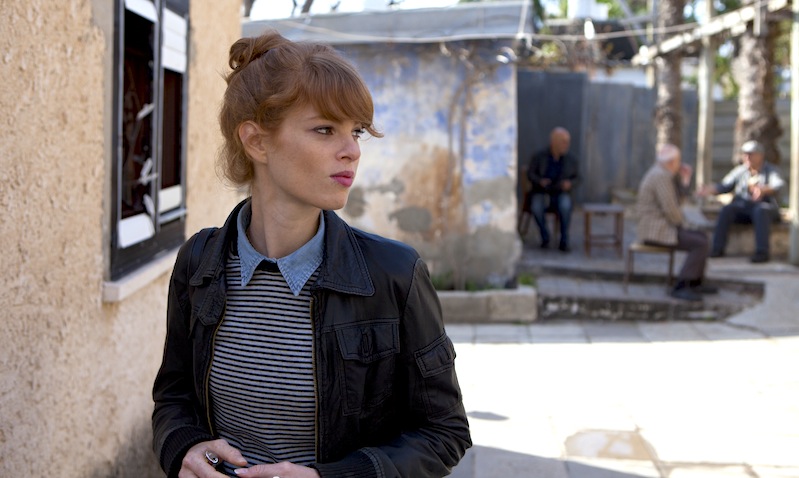
If there was one stylistic trend at Venice this year, it was bravura, lengthy shots. The festival kicked off with the twenty-minute opening shot of “Gravity,” and the rest of the festival sometimes felt like some kind of who-can-hold-a-shot the longest competition, with Steven Knight‘s “Locke” and Tsai Ming-Liang‘s “Stray Dogs” also getting in on the real-time act. But if this competition had a winner, it was undoubtedly Amos Gitai, with his latest film “Ana Arabia.”
Almost uniquely (“Russian Ark” is the obvious forerunner here), the film is made up of a single take, an unbroken 81-minute Steadicam shot without a single cut. It’s a bold and ambitious move for the Cannes and Venice favorite, behind films like “Kadosh,” “Kippur,” “Promised Land” and “Free Zone,” but while “Ana Arabia” is well-meaning, its central gimmick ultimately proves to be the only really interesting thing about it.

Gitai’s camera follows Yael (Yuval Scharf), a young journalist who has learned of the recent death of Siam, known as ‘Ana Arabia,’ a Holocaust survivor who, after moving to Israel, converted to Islam and married a Muslim construction worker. She’s arrived in a tiny area of Jaffa (near Tel Aviv), and is tracked as she walks through the town talking to Yussuf (Yussuf Abu Warda), Siam’s husband, as well as their children, Miriam (Sarah Adler) and Walid (Shady Srur), and daughter-in-law (Assi Levy).
The idea of the Holocaust survivor-turned-Muslim, based, apparently, on a real person, is an undeniably fascinating one, but Siam isn’t really the concern of the film, except as a metaphor for the idea of peaceful Arab/Israeli co-existence. Instead, the film covers both the idea of the latter, and more predominately of the inequality that exists in Israeli society, and of love and life in general.

It’s meditative and humanistic stuff, and in places, can be moving and thought-provoking—some of the material involving Sarah and her short-lived marriage to Siam and Yussuf’s other son is particularly well-performed. But it’s also unfocused and borderline anemic, entirely lacking in any kind of dramatic momentum, or indeed drama of any kind. There are certainly ways of making this kind of conversational film compelling (think “Certified Copy” or the “Before” films), but the writing needs to be top notch, and Gitai’s screenplay here simply isn’t interesting enough, as laudable as its intentions might be.
Part of the reason for this is the absolute blankness of its protagonist. Scharf is a captivating but inscrutable presence, and her character a pretty terrible journalist—she doesn’t so much chase a story as walk around and let people explain things to her, so it becomes very hard to connect with what’s going on, even when it’s being fitfully absorbing (which is not all that often).
As for the film’s formal conceit, while it’s undeniably impressive (the Steadicam operator at least deserves a round of applause), it doesn’t really add much to what Gitai seems to be trying to say. To use the earlier comparison, “Russian Ark” take the one-take idea, and makes something of pure cinema. “Ana Arabia” uses it as window dressing for passive and somewhat rambling conversation, and not particularly sparkling conversation at that. If anything, it adds to the sense of airless artificiality that pervades the film, and while the magic-hour setting is undeniably atmospheric, the whole idea never comes to feel like anything more than that gimmick it initially appears to be. [C-]
Browse through all our coverage of the 2013 Venice Film Festival to date by clicking here.

